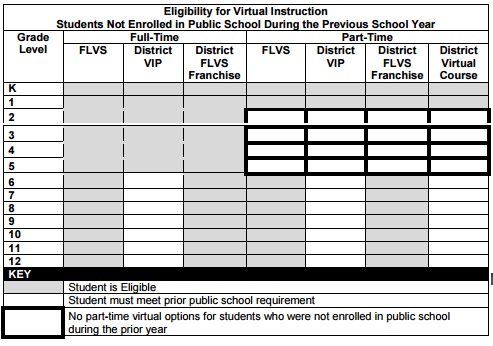In the coming weeks, Florida lawmakers could dismantle the last remaining legal barriers to K-12 students who want to enroll in publicly funded virtual education.
Florida is home to some of the oldest and largest virtual schools in the country, and often considered a top state for online education.But virtual school officials say they've turned away hundreds of students who don't qualify for online courses, due to a few restrictions that remain on the books. Those restrictions would be removed by bills advancing in both chambers of the state Legislature, one of which could be taken up on the House floor as early as Wednesday.
Last month, sponsor Bob Cortes, R-Altamonte Springs, told the House Education Committee that HB 7029, which also includes a number of provisions dealing with charter schools, would make it so "there are no barriers to virtual education, so we have virtual education for all."
Right now, students in second through fifth grades are barred from enrolling in part-time virtual courses, and children in middle and high school can only take part-time courses offered by Florida Virtual School, its district franchises, and their private competitors if they were enrolled full-time in public school the previous year.
The lifting of those restrictions has the backing of the statewide virtual school, as well as some school districts, like the Miami-Dade County School Board, which offers its own part-time virtual courses.

A diagram prepared by House staff breaks down the current eligibility gaps for virtual courses, which HB 7029 would eliminate.
"This is positive for all virtual programs. It takes a lot of the confusion away for parents," Holly Sagues, FLVS' Executive Director for Governmental Affairs and Strategic Solutions, said of the proposed change. "A lot of times parents have a hard time understanding why their sixth-grade student can take virtual courses but their third-grade student cannot."
With less than four weeks remaining in the nine-week legislative session, a lot of school choice issues remain up in the air. The Senate bill that most closely matches the House's proposal, SB 830, still needs to clear two more committees before it can be heard on the floor.